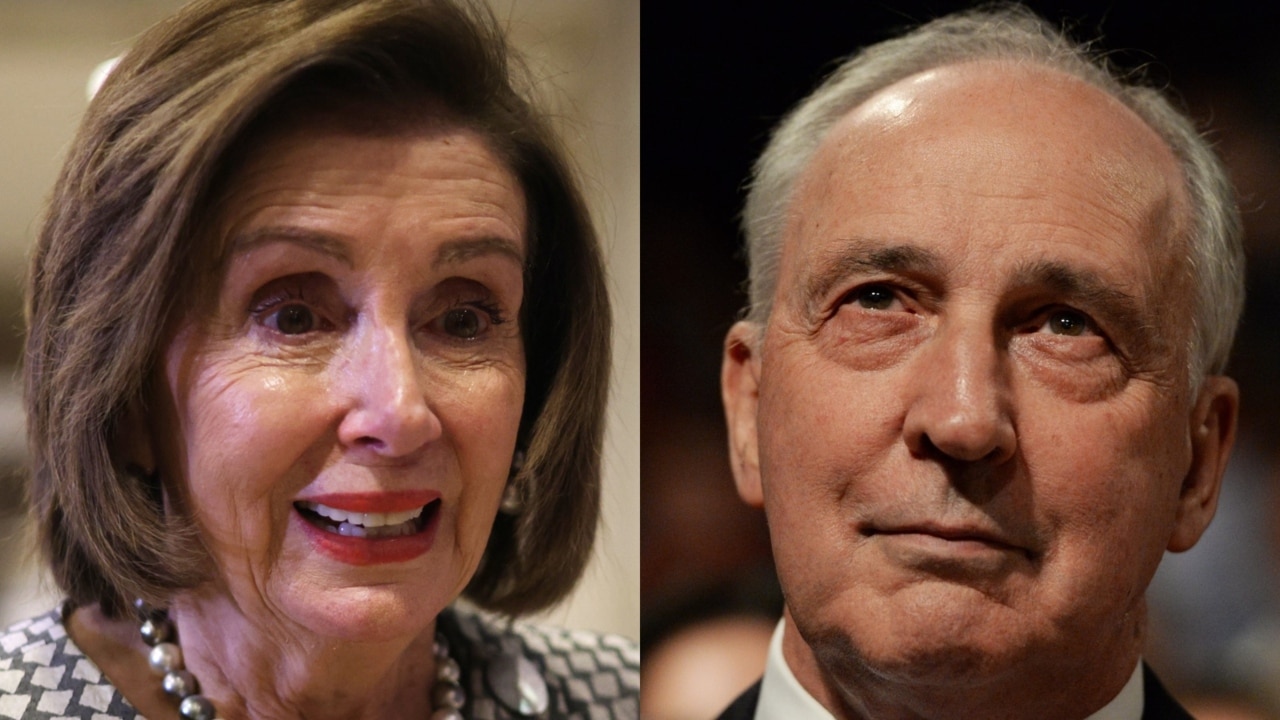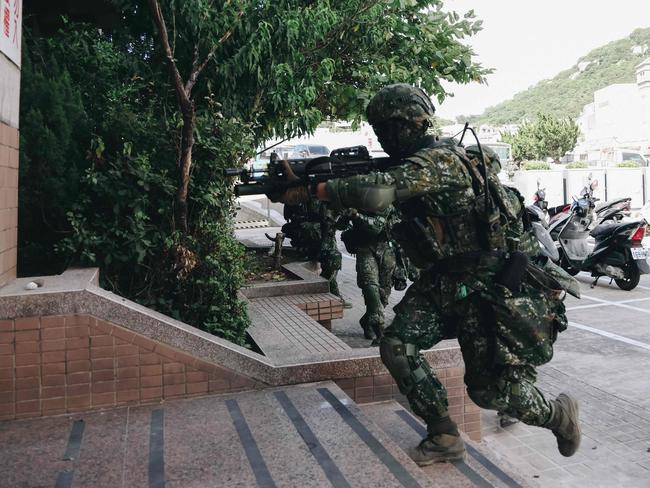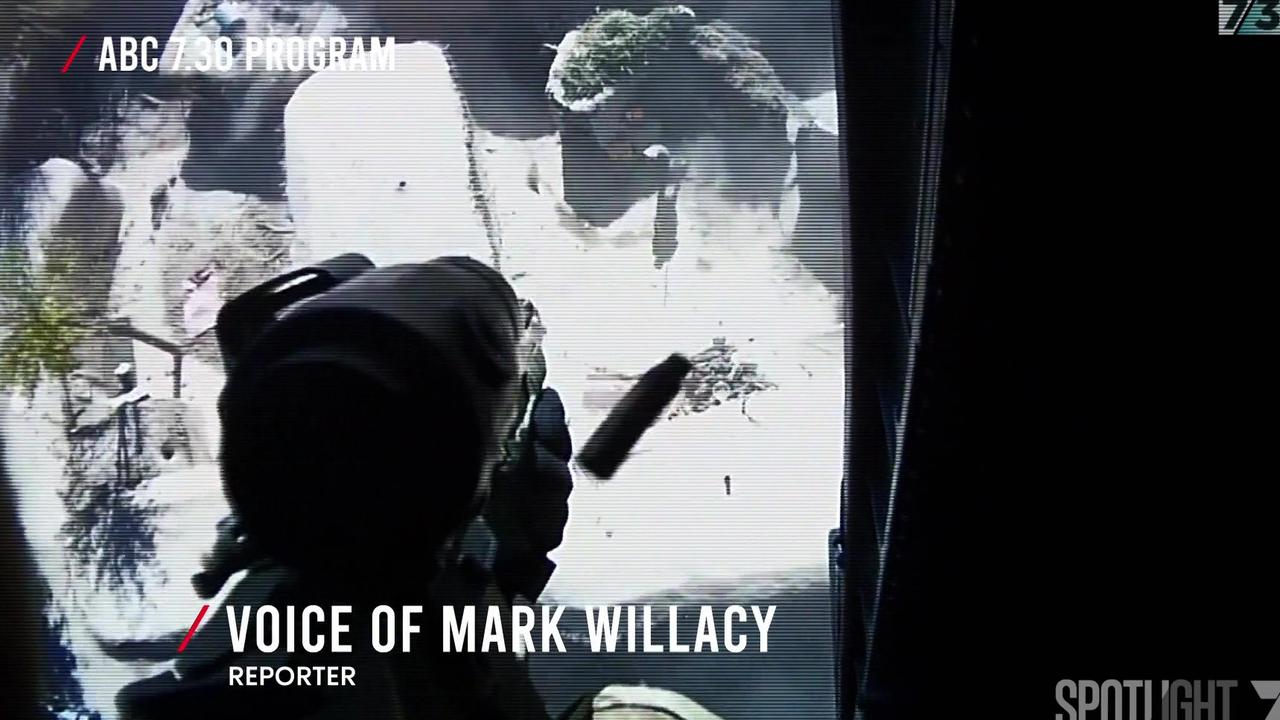Beijing urged to ‘start Taiwan takeover preparations ASAP’, form ‘shadow government’
Chinese experts have called on Beijing to begin preparations to take over Taiwan “as soon as possible” in the face of a potential Donald Trump presidency.

Innovation
Don't miss out on the headlines from Innovation. Followed categories will be added to My News.
Beijing should begin preparations to take over Taiwan “as soon as possible” in the face of a potential Donald Trump presidency, researchers at a leading Chinese university have urged.
In a now-deleted article, the unnamed researchers at Xiamen University’s Cross-Strait Institute of Urban Planning laid out recommendations for Beijing on how to prepare for post-“reunification” governance of Taiwan.
The piece, translated and shared by the US-based think tank the Center for Strategic and International Studies (CSIS) earlier this month, urges Beijing to create a “shadow government” that would be ready to take over in Taipei immediately, thereby shortening the risky “transition period” after regime change.
“In the face of changes unseen in a century, the international situation is changing rapidly,” the article begins.
“With the probability of Trump coming to power increasing, the timetable for Taiwan ‘reunification’ could be moved up at any time. The unrest in Hong Kong over the last several years has shown that if preparatory plans for the transfer of power are not made fully and properly, it will result in very serious consequences for the smooth transfer of social order in the future.”

The authors argue that the “One Country, Two Systems” model Beijing has adopted toward Hong Kong would be inappropriate for governing Taiwan, and that “the aim from the outset should be full integration into the mainland”.
“Once the mainland takes over Taiwan, the depth and breadth of the takeover will be far greater than in Hong Kong in 1997, so preparing plans for the comprehensive takeover of Taiwan after ‘reunification’ is already an urgent matter,” they write.
They suggest that Beijing should “set up a Central Taiwan Work Committee as soon as possible”.
“The sole objective of this body will be to serve as a ‘shadow government’ that can enter Taiwan at any time to take over the regime on the other side of the Strait,” they write.
This body would be structured to reflect the existing organisations in Taiwan, and would focus on developing policies around a variety of issues including laws, currency conversion, infrastructure integration, travel, education, military and civil service.
It would also be tasked with “thoroughly” understanding the history, personnel and operations of the corresponding departments in order to develop “takeover plans” for staff, funding and assets, so that it can “thoroughly and efficiently digest Taiwan’s existing systems”.

“As a relatively more developed economy than the mainland, many of the issues it has to deal with are ones that the mainland has seldom, if ever, encountered,” they write. “This necessitates that the work be carried out as early as possible.”
One key purpose of setting up this “shadow government” would be to bring together the “anti-Taiwan independence forces” currently on the island, who have “weakened in recent years” due to the belief that “reunification is still very far away”.
“If preparations for the actual takeover of power begin, this action itself will have a significant impact on public sentiment on the island,” they write.
Another key reason would be to “smooth the impact of regime change”.
The researchers suggest the Central Taiwan Work Committee should allow Taiwan’s “elites and institutions to participate in the design of the Taiwan takeover plans as much as possible through personal consultations and project commissions”, in part so “stable expectations and psychological preparations can be formed on the island”.
“Allowing Taiwanese society to feel that they participated in the regime handover plans will greatly reduce the cost of actual governance in the future, and form a mainstream consensus in society,” they write.

In addition to the Central Taiwan Work Committee, the researchers call for the establishment of a “Taiwan Governance Experimental Zone” in nearby Xiamen, which would be a “highly realistic physical environment” to train members of the shadow government and experiment with post-regime change policies by simulating the existing political power structures in Taiwan “as closely as possible”.
“By recruiting retired military, civil servants, and teachers from Taiwan, the experimental zone would be able to help formulate the details of takeover policy, thereby shortening the transition period, which is the riskiest period of regime change,” they write.
China claims democratic Taiwan as part of its territory and has refused to rule out using force to bring the island under its control.
Beijing has stepped up pressure on Taipei in recent years and has held escalating military drills around the self-ruled island, including days after the inauguration of its new President Lai Ching-te in May.
Mr Lai’s Democratic Progressive Party has long asserted Taiwanese sovereignty, and Beijing has not conducted top-level communications with Taipei since 2016, when his predecessor Tsai Ing-wen came to power.
Chinese President Xi Jinping, who was handed a historic third five-year term in 2022, has made “reunification” a key pledge of his government.

The US, while officially subscribing to the “One China” policy recognising Beijing as the legitimate government over the entire territory, maintains robust unofficial ties with Taiwan, which it supports with defensive weaponry.
Washington had long implied, but never outright stated, that it would come to the aid of Taiwan if China invaded — until US President Joe Biden on several occasions explicitly voiced the unspoken pledge, sparking anger from Beijing.
Taiwan is one of the most strategically important resources to the US economy, producing the lion’s share of the most advanced semiconductors required for modern technology on the island.
Last February, CIA director William Burns said the US knew “as a matter of intelligence” that President Xi had ordered his military to be ready to invade Taiwan by 2027.
“Now, that does not mean that he’s decided to conduct an invasion in 2027, or any other year, but it’s a reminder of the seriousness of his focus and his ambition,” he told an event at Georgetown University in Washington.
“Our assessment at CIA is that I wouldn’t underestimate President Xi’s ambitions with regard to Taiwan.”
US Air Force General Mike Minihan said a month earlier that it was possible such a move could happen within the next two years. That in turn could lead to direct conflict between China and the US.

“I hope I am wrong. My gut tells me we will fight in 2025,” he said in an internal memo, which cited Taiwan’s presidential elections and the US vote in November as potentially destabilising events.
War games conducted by the CSIS in 2023 concluded that in most scenarios China would lose a war over Taiwan if the US and other allies including Australia and Japan got involved, but that all parties would suffer “enormous” losses.
It comes after comments by former Prime Minister Paul Keating describing Taiwan as “Chinese real estate” were branded “stupid” and “ridiculous” by former US House Speaker Nancy Pelosi.
Mr Keating, speaking to the ABC’s 7.30 last week, characterised the US as an aggressive power” which was “trying to superintend from the Atlantic the largest Asian power, which is China”.
Mr Keating argued that, instead of allying with the US, Australia was “better left alone”.
“What this is all about is the Chinese laying claim to Taiwan. And the Americans are going to say, ‘No, we’re going to keep these Taiwanese people protected,’ even though they’re sitting on Chinese real estate,” he said.

“The Chinese will fight to the last teenage soldier to defend Taiwan and the Chinese state, and the Americans will not take on such a fight and, more than that, will not win it. All of a sudden the Americans take off and leave and we’re the ones who have done all the offence.”
Taiwanese officials called the comments “incorrect and dangerously misleading”, and Ms Pelosi — a top Democratic Party powerbroker — took aim at the former PM.
“That’s ridiculous,” she told 7.30.
“It is not Chinese real estate, and he should know that. Taiwan is Taiwan, and it’s the people of Taiwan who have a democracy there. I think that it was a stupid statement. I have no idea about Keating. But you know, it was a stupid statement to make. And I don’t know what his connection is to China that he would say such a thing, but it is really not in the security interest of the Asia-Pacific region for people to talk that way.”
Mr Keating later responded in a statement headlined “pot calling the kettle black”.
Describing the then-Speaker’s 2022 visit to Taiwan — which infuriated Beijing — as “recklessly indulgent”, he claimed it had ”very nearly brought the United States and China to a military confrontation”.
“Both our countries believe it is in no one’s interest for Taiwan to be subject of some sort of violent takeover,” Mr Keating wrote.
“This is why I said on 7.30 last week that Chinese and Taiwanese interests will, ‘Get resolved socially and politically over time. That’s what will happen there.’ I represent the national interests of Australia, not the national interests of the United Stated nor, indeed, the interests of Taiwan.”
— with Brielle Burns and Samuel Clench
Originally published as Beijing urged to ‘start Taiwan takeover preparations ASAP’, form ‘shadow government’





